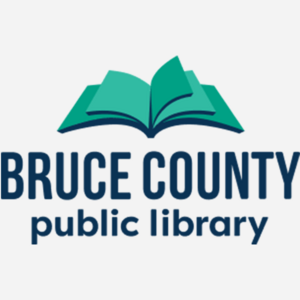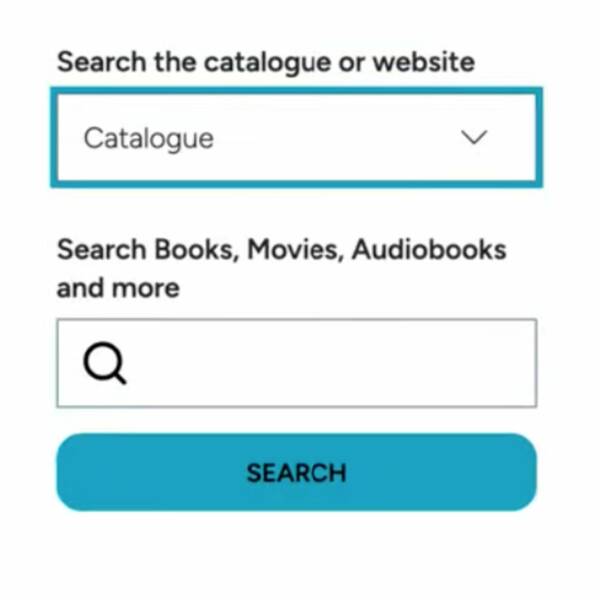Mugo partner since 2020
Oldham County Public Library prepares for the future with new website
The Oldham County Public Library needed to improve its website to better reflect its expanding events programming and physical facilities. The library is anticipating a capital campaign for two new locations in the Louisville, Kentucky, metropolitan area this year. And its summer reading and non-traditional learning resource lending programs are drawing record numbers of participants.
But its website wasn’t keeping pace. OCPL’s old site was built with HTML and CSS by library staff and hosted in-house. It provided basic information to patrons, but it was cumbersome to manage. And the relatively high level of technical expertise needed to update content created a bottleneck.
What’s more, the site’s appearance didn’t support OCPL’s innovative vision. It was not optimized for all devices, and it simply looked a little old.
“We knew we needed to update the site, with our plans for growth, but the prospect of this kind of project is always a little daunting,” said Jessica Powell, OCPL’s director. “There’s always more than you expect to deal with, and our main focus is always going to be on serving patrons, not technology.”
OCPL chose Mugo Web as its development partner, and its new site went live in November 2020 – on time, on budget, and to a welcome reception by the library’s staff and patrons.
“Everyone is very pleased,” said Bethany Morse, the OCPL librarian who coordinated the project and is the primary operator of the new site. “The staff loves it, our patrons tell us they really like it, editing content is a joy. And the launch was incredibly smooth.”
The OCPL website project needed to encompass more than just content management system (CMS) selection and development. A brand refresh, careful audit and management of legacy technical systems, and prioritization of patron engagement features were essential. And the entire process needed to be managed smoothly so as not to create a strain on staff resources while the library responded to the COVID-19 pandemic.
The reason the OCPL project went so well, while other libraries run into so many problems, was careful planning and a focus on identifying and solving any obstacles, regardless of where they might arise.
“So many projects fail because the web developer does not take a big picture view of where the website fits in with all of the other technology,” said Peter Keung, Mugo Web’s managing director.
“People tend to say ‘it’s not my problem,’ – no, it is going to be a problem, and somebody has to fix it, whether or not you signed up to sort out the previous Windows server or internal DNS, or whatever,” Keung said. “The web team has to be willing to drive the process forward.”
Keung noted that libraries are particularly at risk of these issues slipping through the cracks, given that different groups tend to manage the tech, operations, and marketing of the site. All of these elements need to come together under one project umbrella, and a web development consultant is the best candidate to help guide that organization. “It’s an unfair burden to place on an IT team. You should be able to collaborate with your website developer and solve these problems together,” he said.
The results?
“This was the smoothest transition we’ve had with any tech update, ever,” OCPL’s Powell said. “Peter fully explained what needed to happen … Mugo was patient and very communicative.
The first step in the OCPL project was identifying key stakeholders and identifying all the issues that would need to be resolved prior to launch. This audit included tech issues, such as the catalog system, internal web-based staff tools, domain names, and SSL certificates, as well as resource availability and ensuring that third parties involved were up to the task.
After this roadmap was laid out, the project kicked off.
Mugo Web worked with design partner Spin Key Media to create a new logo, font set and color palette that would work not only on the new site, but also on letterhead, business cards, social media and all other visual communications.
The new logo has a modern feel, but Powell said it still “looks library enough” to clearly convey the message that while OCPL is a place for readers, it offers a broad range of learning resources and programming. “It really looks like it belongs on this new, modern site,” she added.
Morse said the library is working on incorporating the new visual brand into staff and programming imagery.
OCPL’s old site was hosted on-site and managed on the IT side by a third-party service that focuses on library tech. The library's main catalog system is TLC’s LS2 PAC, which remains locally hosted. The new site, built on the Ibexa DXP, is entirely web-based.
Integrating the new site with about five key internally-hosted systems could have been tricky and resulted in painful project delays. For example, DNS has to be managed for both internal and external access. And each domain needs proprietary configuration for ports and SSL certificates.
Additionally, numerous applications were tied to the old domain for the internally-host website and could not simply be moved to new locations. This required moving some assets to sub-domains and re-routing requests.
Hunting down and resolving such details can take months, Mugo’s Keung said, if they are not meticulously anticipated. Mugo worked with OCPL’s IT consultant to identify every possible snag and have a clear plan to address them.
The new OCPL site is based on the library-centric features developed by Mugo Web on the Ibexa DXP.
Each of the library’s three branches has a page dedicated to its operating hours, location and other features. The events calendar, a standout feature of the Mugo solution, can be filtered by both category and branch location.
Mugo Web added a photo consent checkbox to its event registration form, given that OCPL uses photography and other rich media to promote its events programming. The site’s gallery hosts all media files as well as downloadable binary objects, such as PDFs.
The library is migrating to the Mugo system’s custom form editor for patron feedback.
The Ibexa DXP’s intuitive editing interface has been an enormous hit with the staff, said Morse, who previously made all content updates herself and worked with IT to push changes to live. The ability to quickly update home page content and operating hours was particularly helpful shortly after launch, when the library had to respond to new state guidance on COVID-19.
Mugo Web trained Morse and few other OCPL team members on site operations in advance of the launch. These users managed content migration to the live production environment, which had the dual benefit of enforcing their training and providing QA testing on the new site.
Getting the server environment and other infrastructure in place well in advance of the planned launch date enabled the team to get ready and ensured a smooth transition.
The library began seeing positive results from the new site immediately, Morse said. In fact, even before the site went live to patrons inside the physical library, users began signing up for events through the new site’s registration system. And in the first couple weeks of operation, about 70 new users signed up for library cards online, more than the previous phone-in process would generate in several months.
Patron feedback about the new site has been almost entirely positive, and Morse said the bounce rate on visits has dropped significantly. And response from library board members has been positive, as well.
“This is just such a wise investment,” Powell said. “With the capital campaign coming up, it’s a really strong brand statement to the community.”
OCPL has aspirations for more services and features to be supported by its new site. Morse said she’s thinking about even more tweaks to the event registration system. She’s also considering a tool for managing remote check-out of physical “learning crate” toolkits – a need that the library could not have anticipated prior the COVID-19 pandemic.
Powell said she expects her library’s web platform to grow and evolve to meet new needs for years to come.
“With Mugo doing it for us, we don’t have to worry about the technology,” she said.

Partner since 2025
Bruce County Public Library launches new, streamlined website for better staff and patron usability.

Mugo partner since 2025
Waukegan Public Library launched a new website, increased engagement from patrons, and streamlined workflows among staff.

HubSpot is a well-established and popular CRM that allows you to manage customer relationships. Among their marketing services, they have native newsletter management, which can help to foster a great relationship with your subscribers. Beyond relying on the default options for newsletter management, you can use the HubSpot API to tailor the customer's experience in selecting their communication preferences.

Recently, one of our clients came to us looking to archive an older website that was no longer being updated. The site still needed to be accessible to the public for reference purposes. Taking it offline was not an option due to its historical value.
Running the site on a traditional hosting environment meant paying for a full web server, application runtime, monitoring, and associated maintenance — all of which were unnecessary for a site that no longer required server-side processing.
If you have a legacy site that doesn’t require dynamic content, migrating it to AWS S3 and CloudFront can be a highly cost-effective solution, all while ensuring it remains accessible, secure, and efficient.
Automating website management tasks like SSL certificate renewal is a great way to save time and mitigate human error, particularly if you manage multiple websites. Learn how to automate SSL certificate renewal using Let’s Encrypt and Oracle Cloud Infrastructure DNS API.
Building a website often comes down to choosing between “best–of-breed” services and cost-effective solutions that meet your business needs while being relatively easy to manage. Here we explore AWS services for automated text messaging and email, and compare them with other 3rd party options in the context of work done for GoLibrary.
Newly revised rules from the ADA regarding digital accessibility mean libraries in the United States have until April 26th, 2026, to ensure they are conforming to WCAG 2.1 AA standards. What does this entail, and how can a library system start making content more accessible?

Tabbing through a web page can be a frustrating experience. The user tabs to access a menu, but with the keyboard's next tap, they’ve moved on to another page element and have to retrace their steps to access the desired content.
For users who rely on keyboard navigation, this can be a major accessibility roadblock. And for other site visitors, it’s just poor UX.
Fortunately, you can implement a fairly straightforward function in JavaScript called a “focus trap” to ensure users don’t leave the page area they’re in without intending to do so.